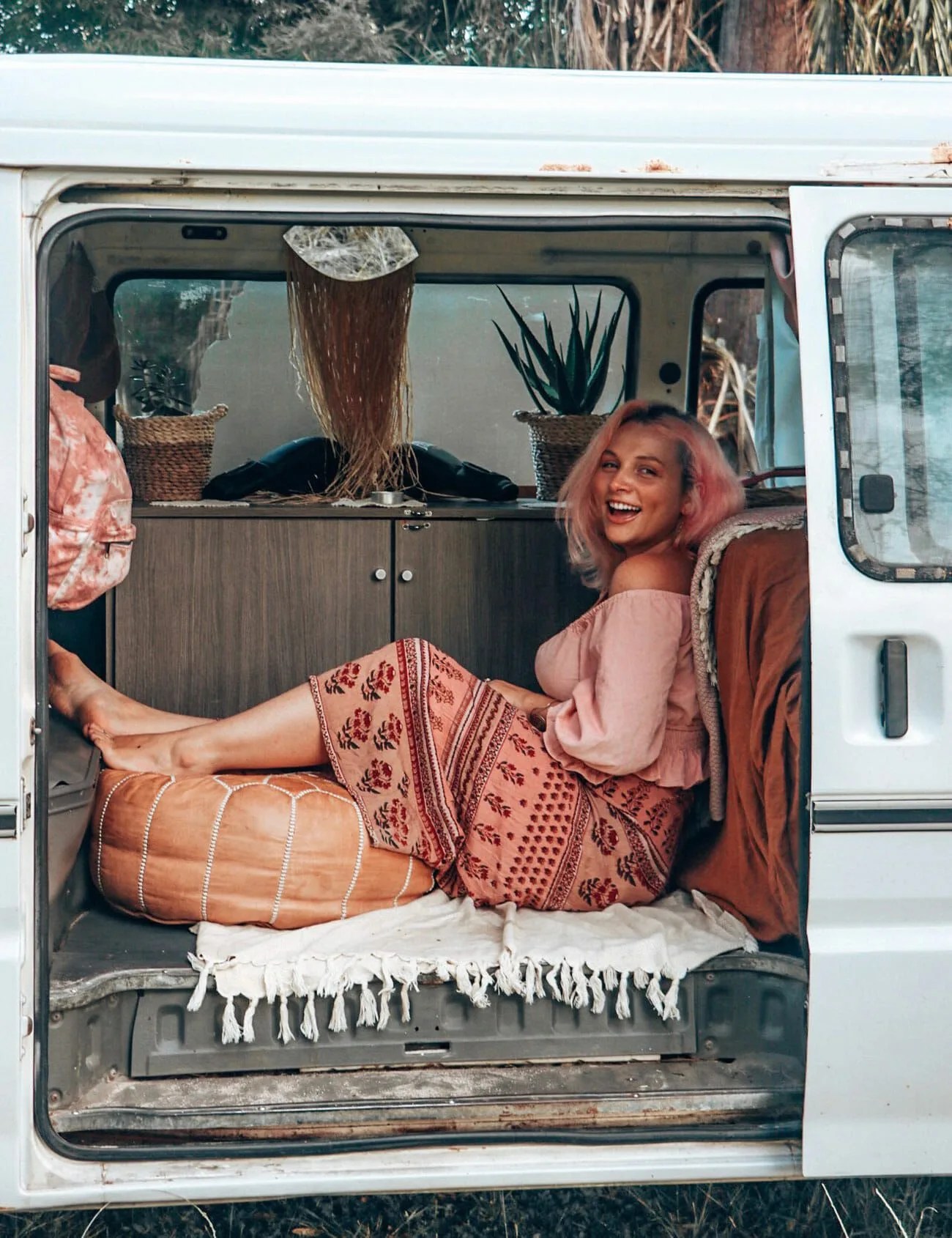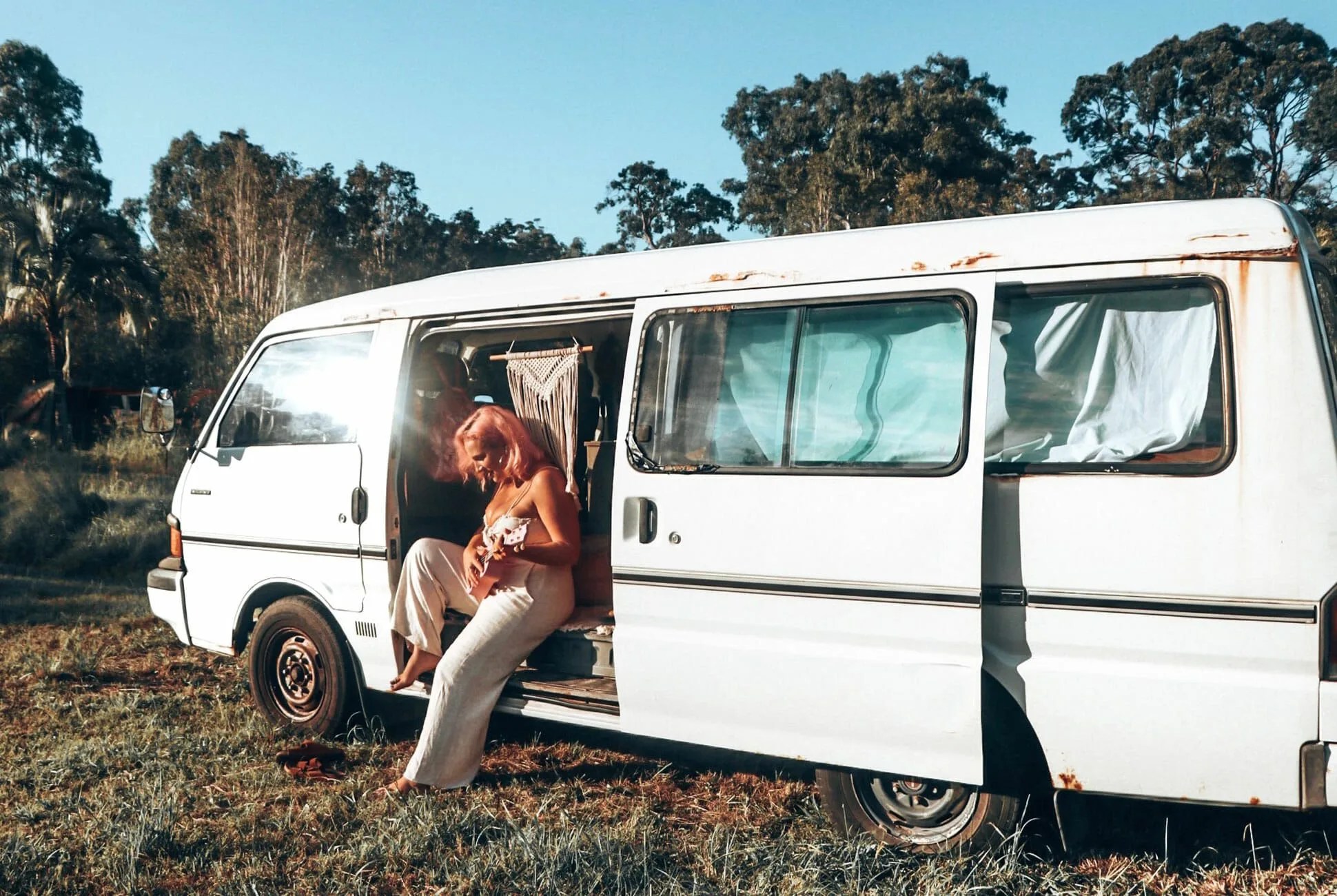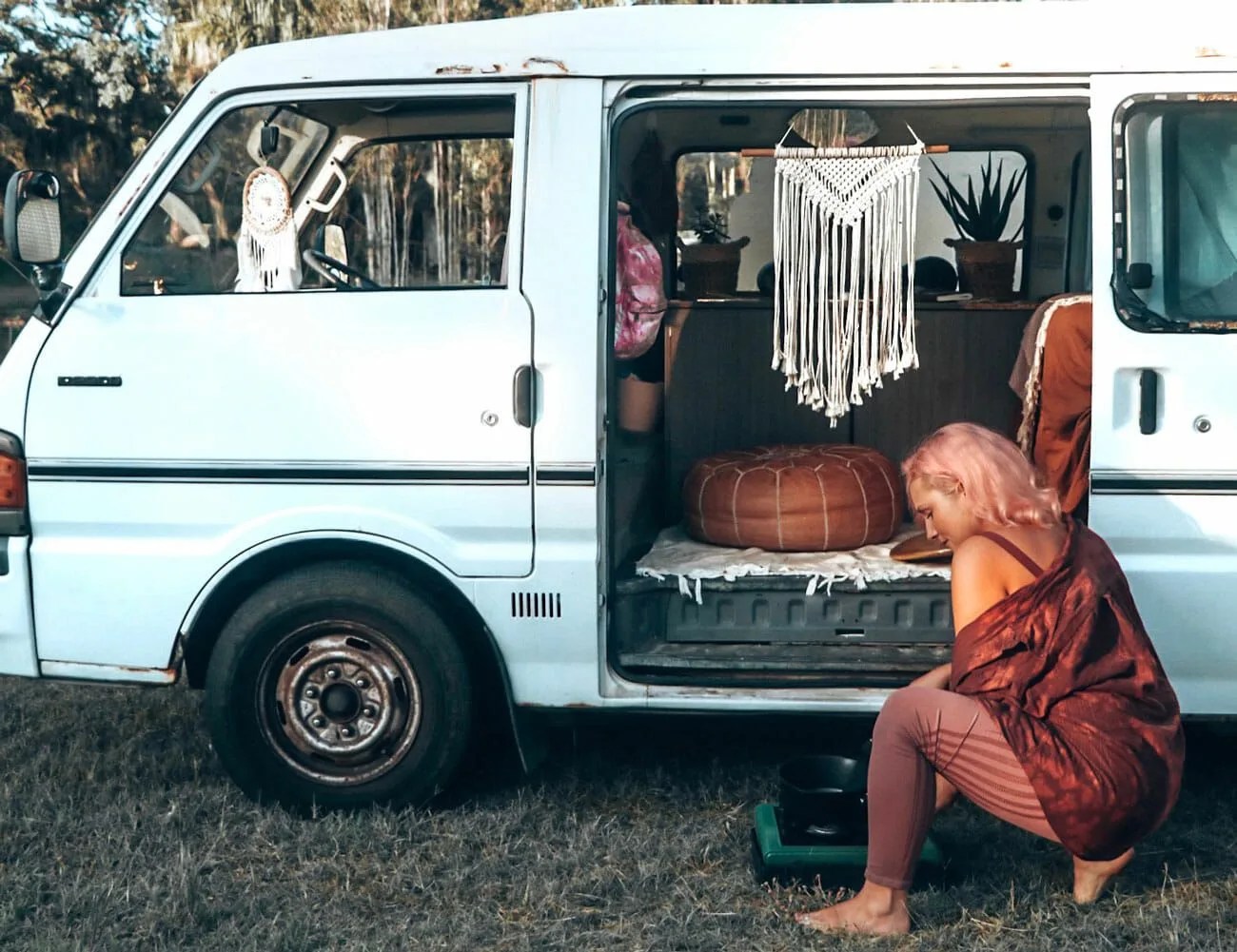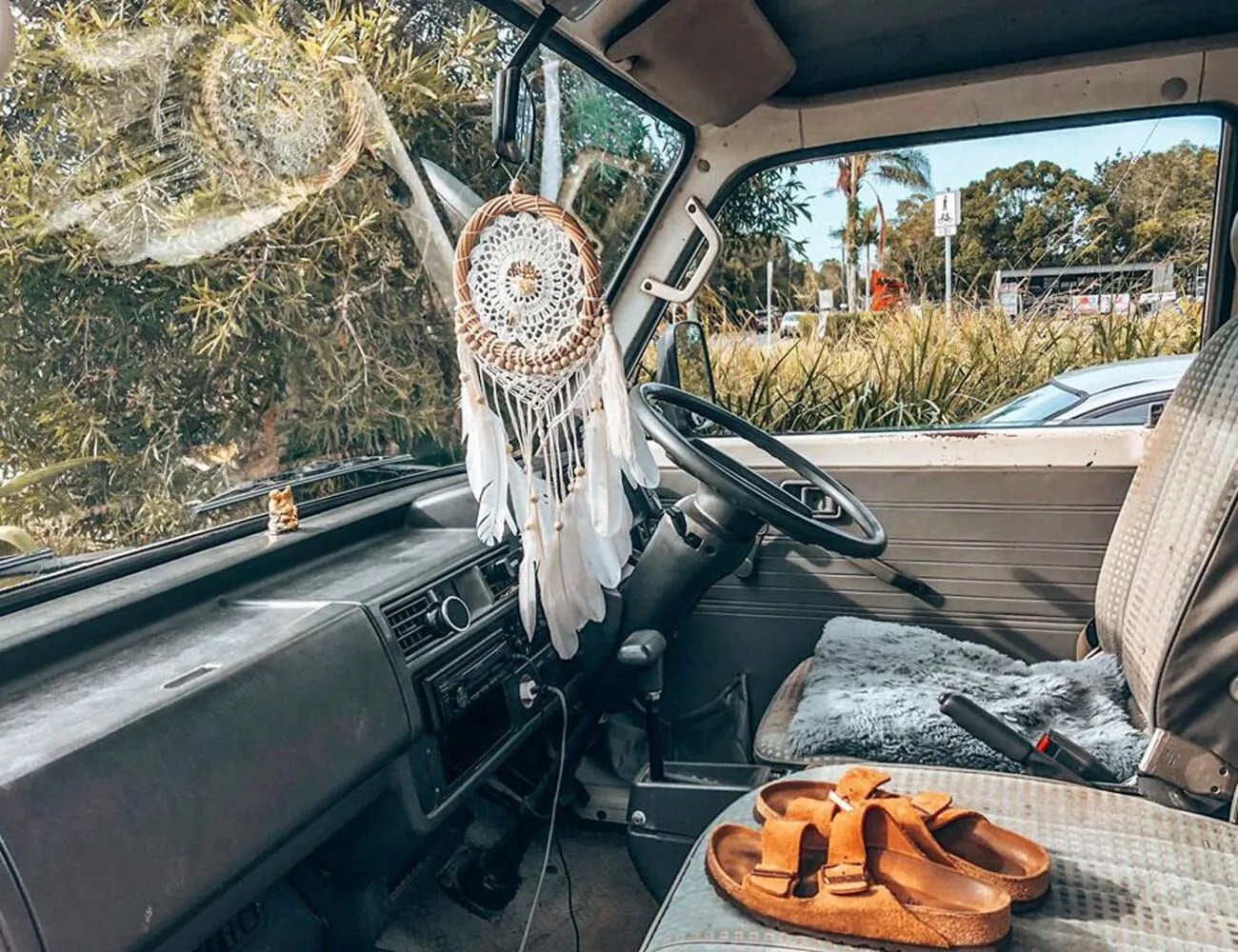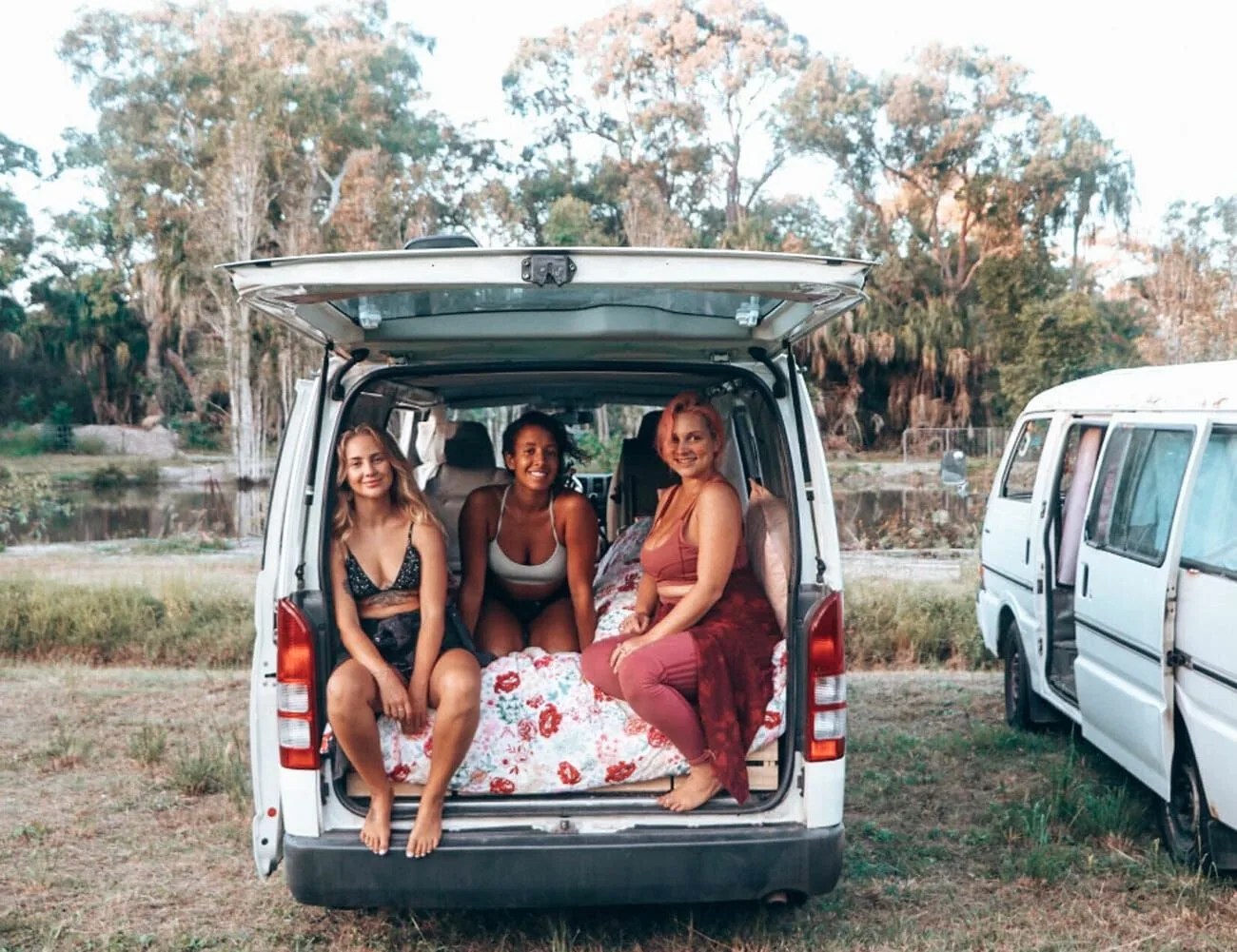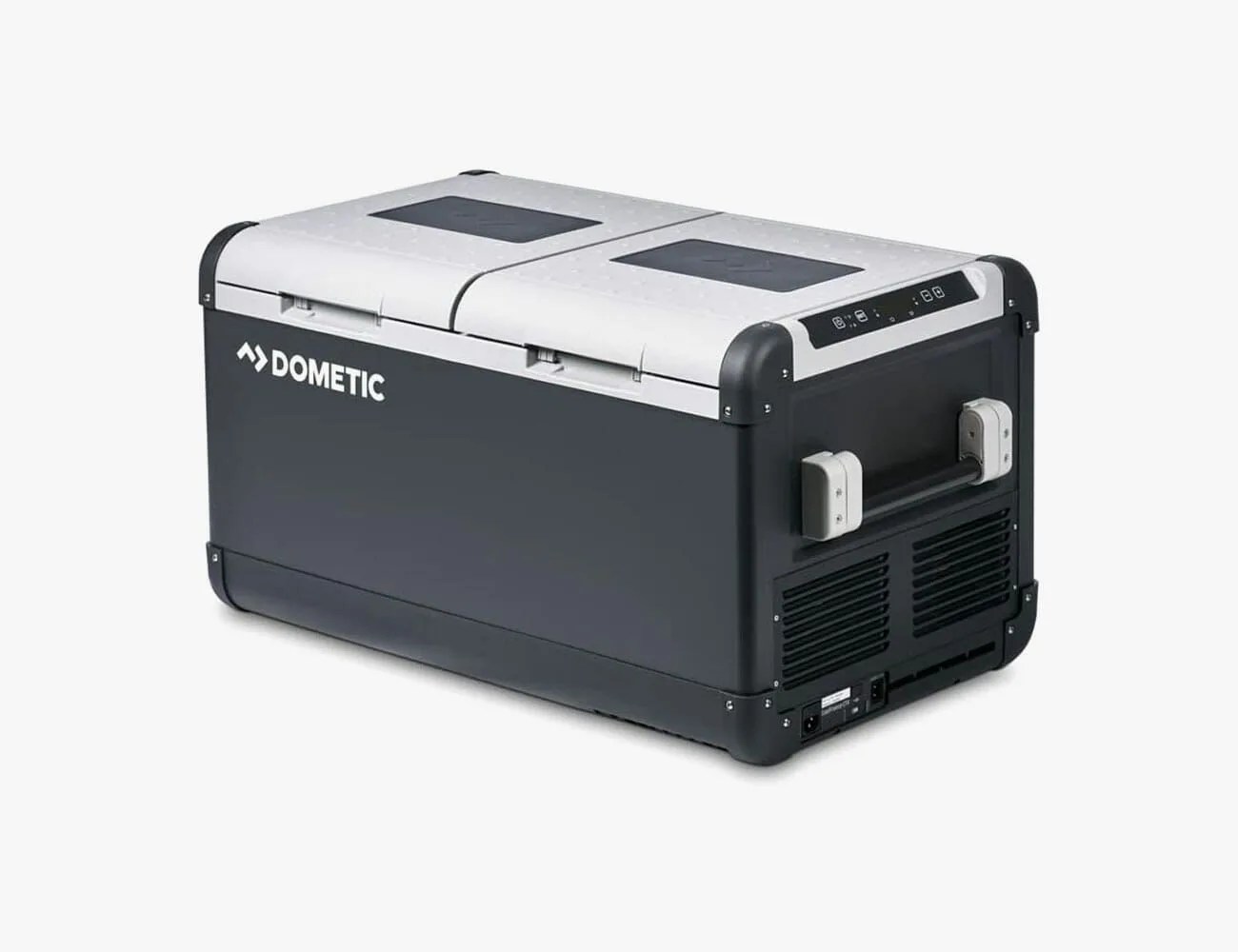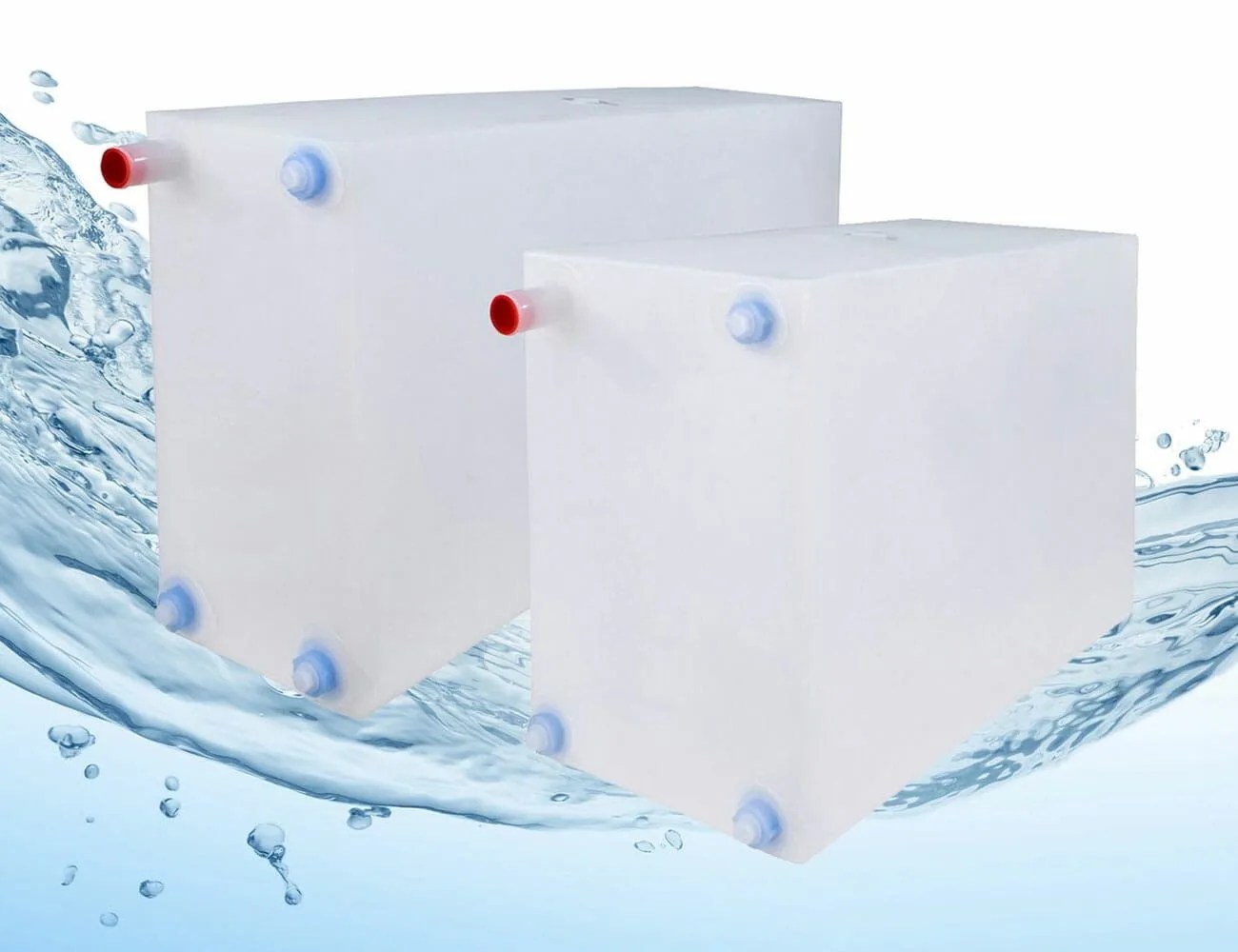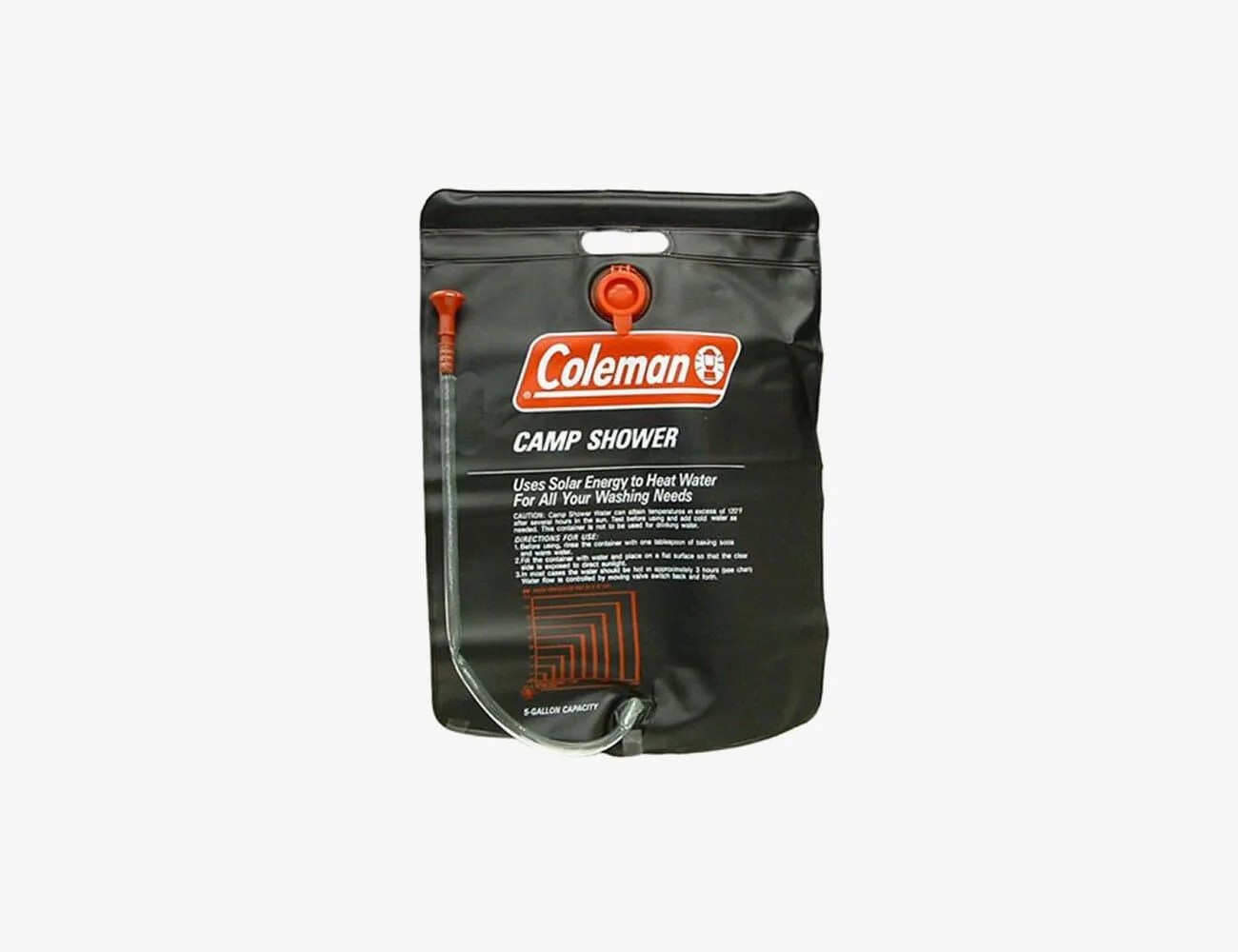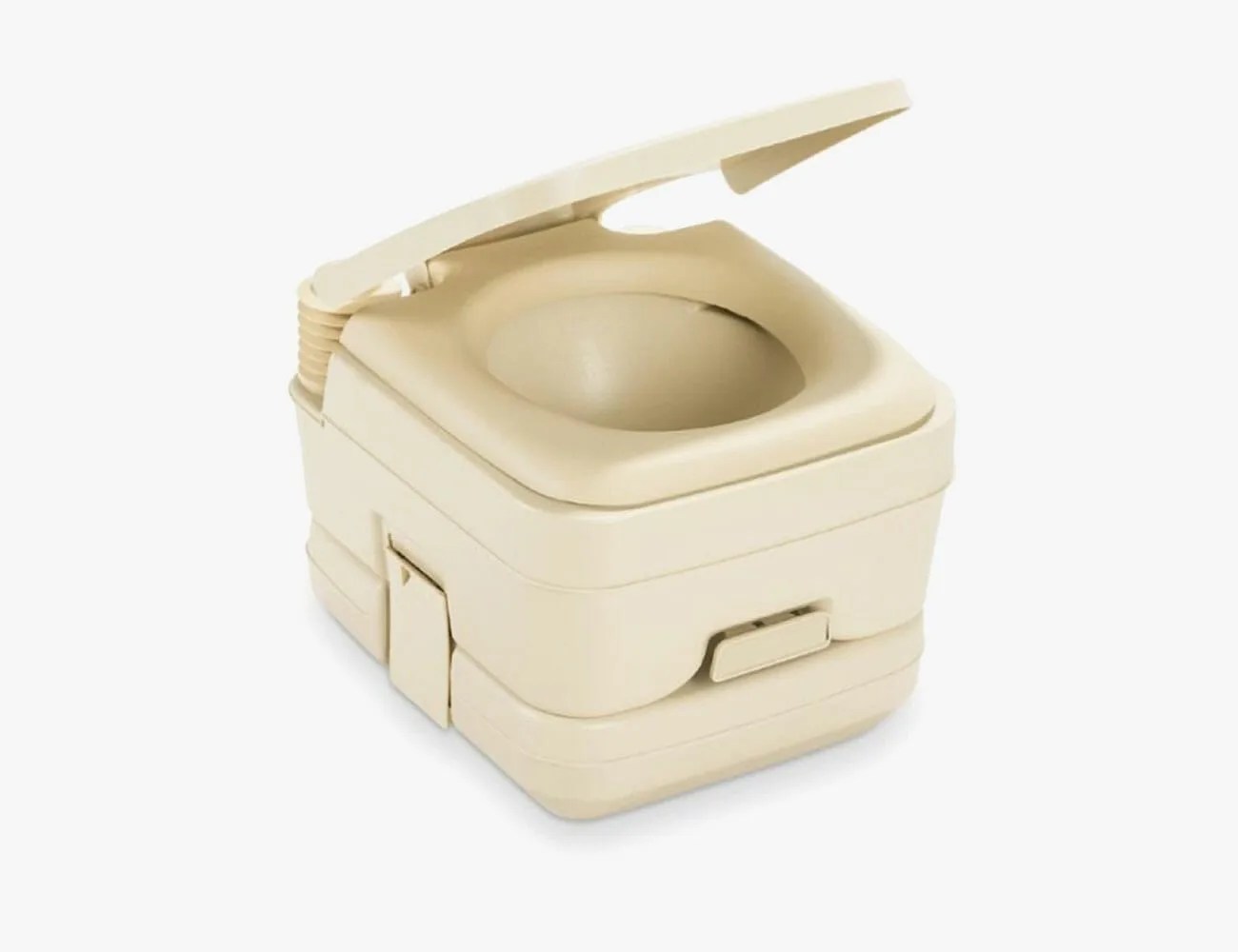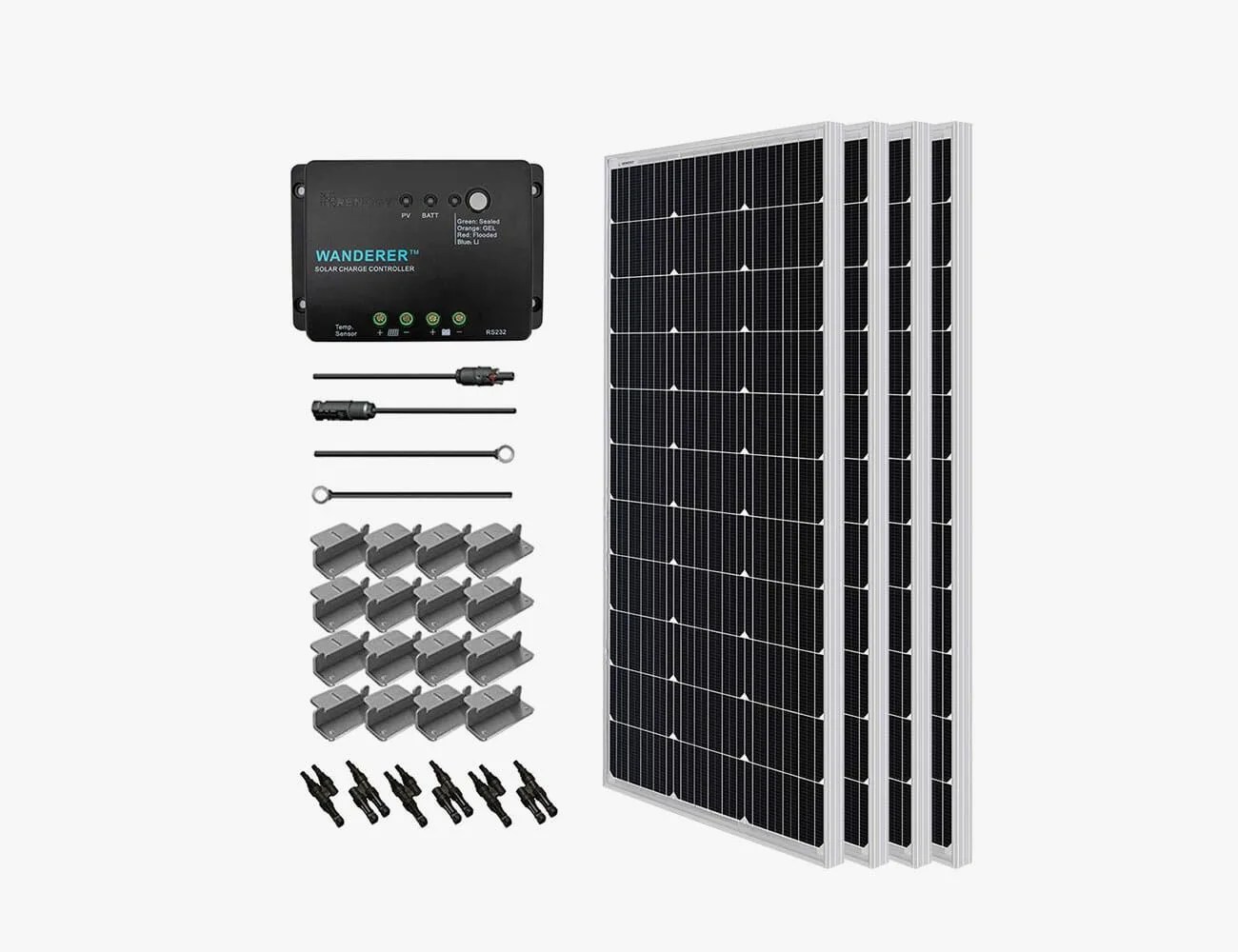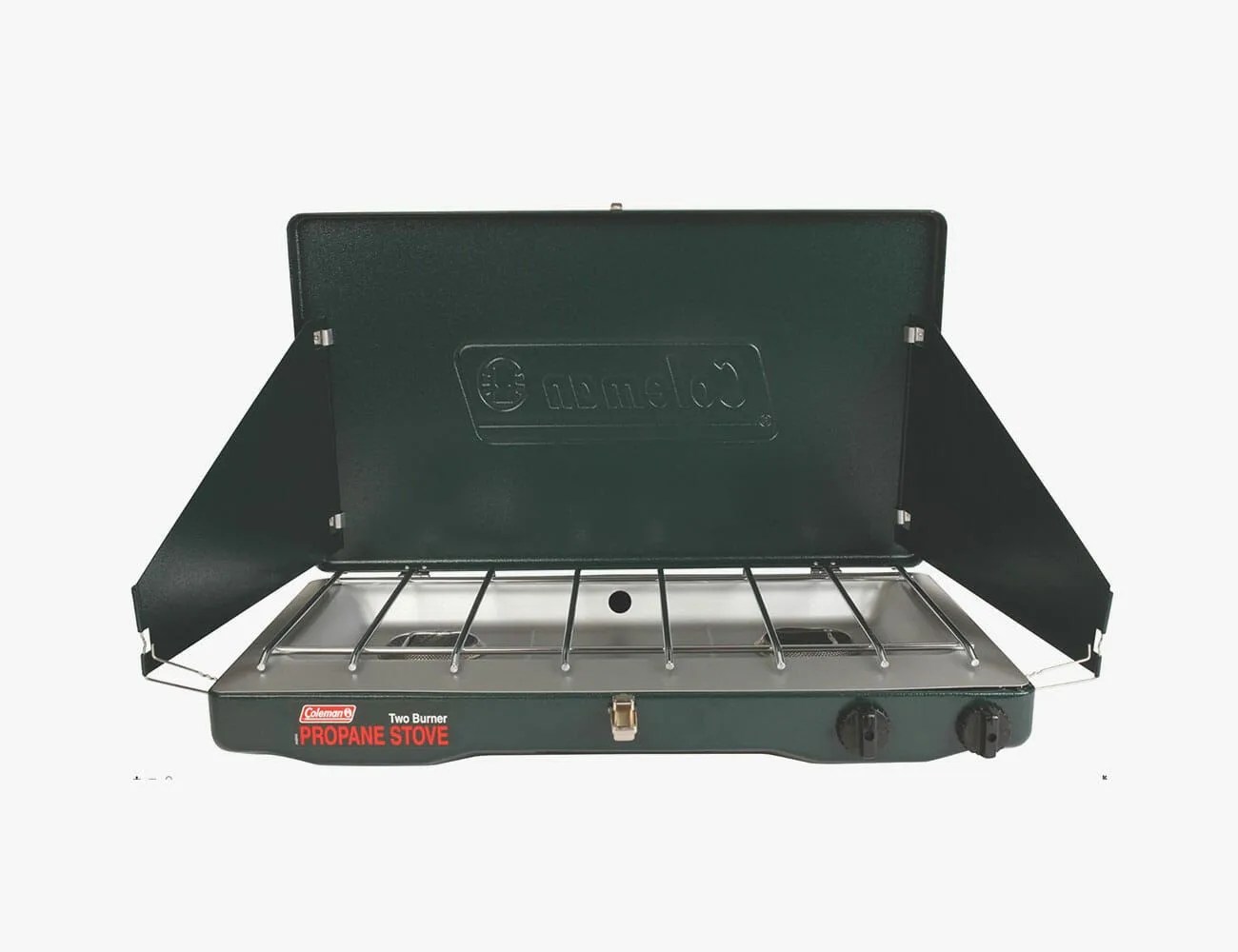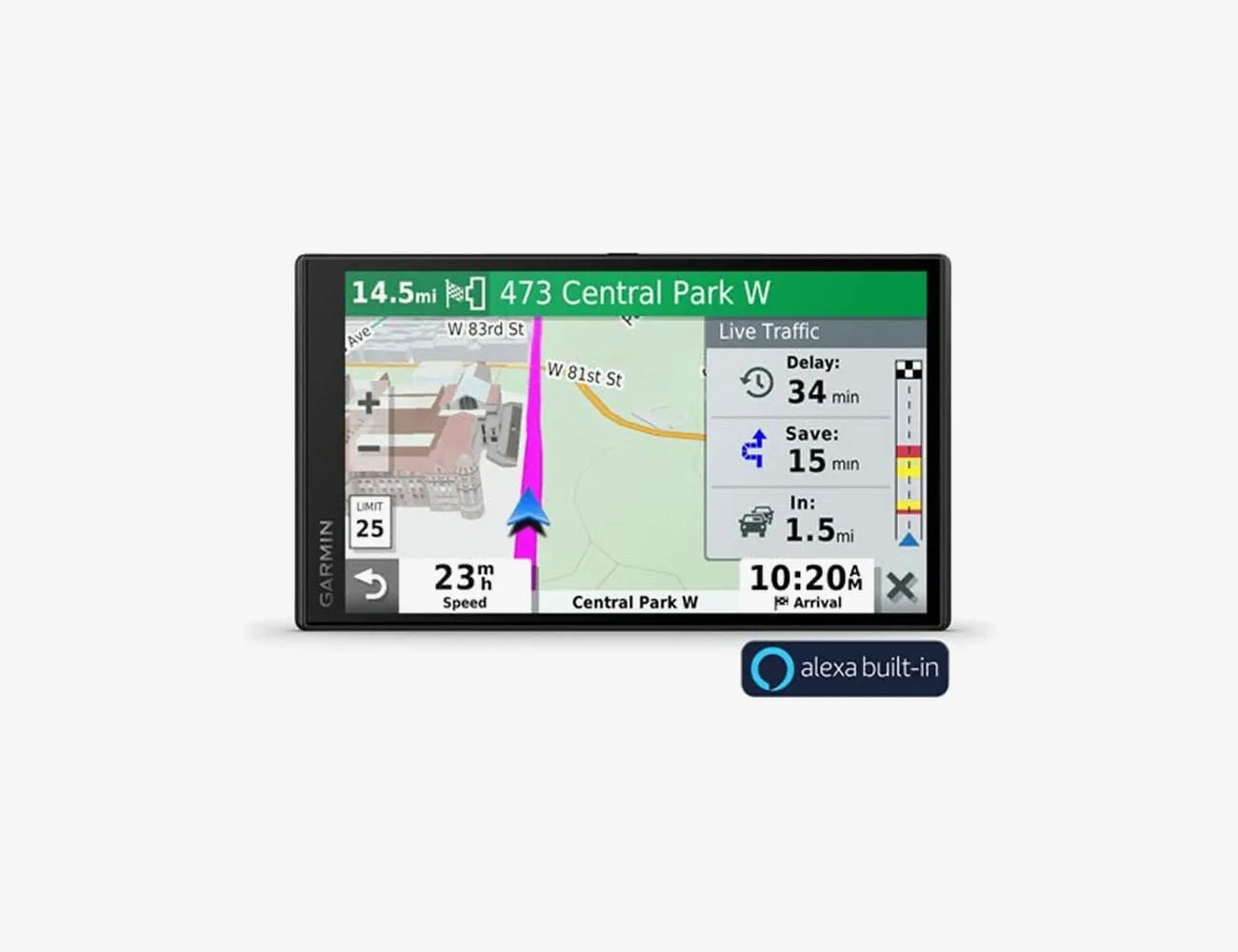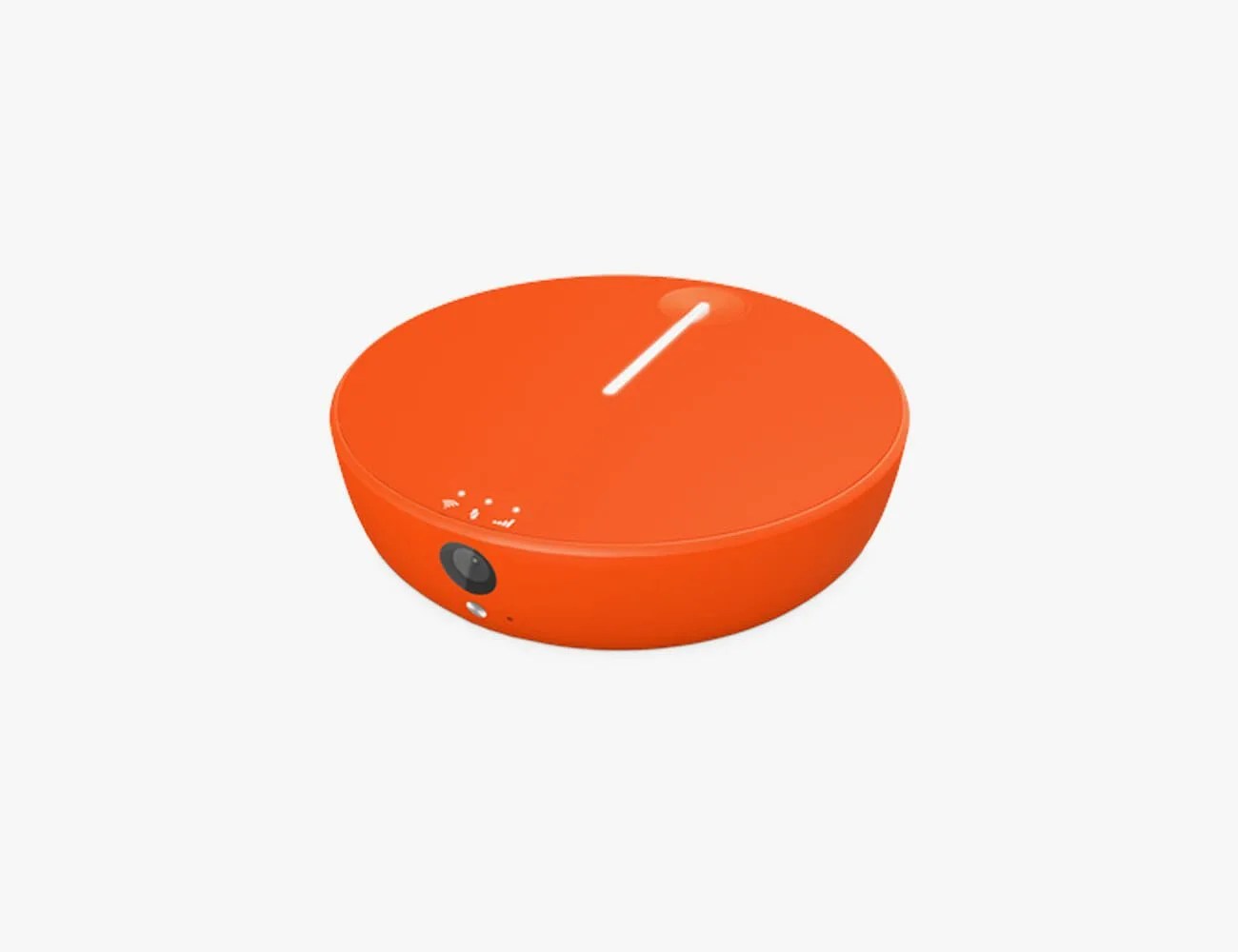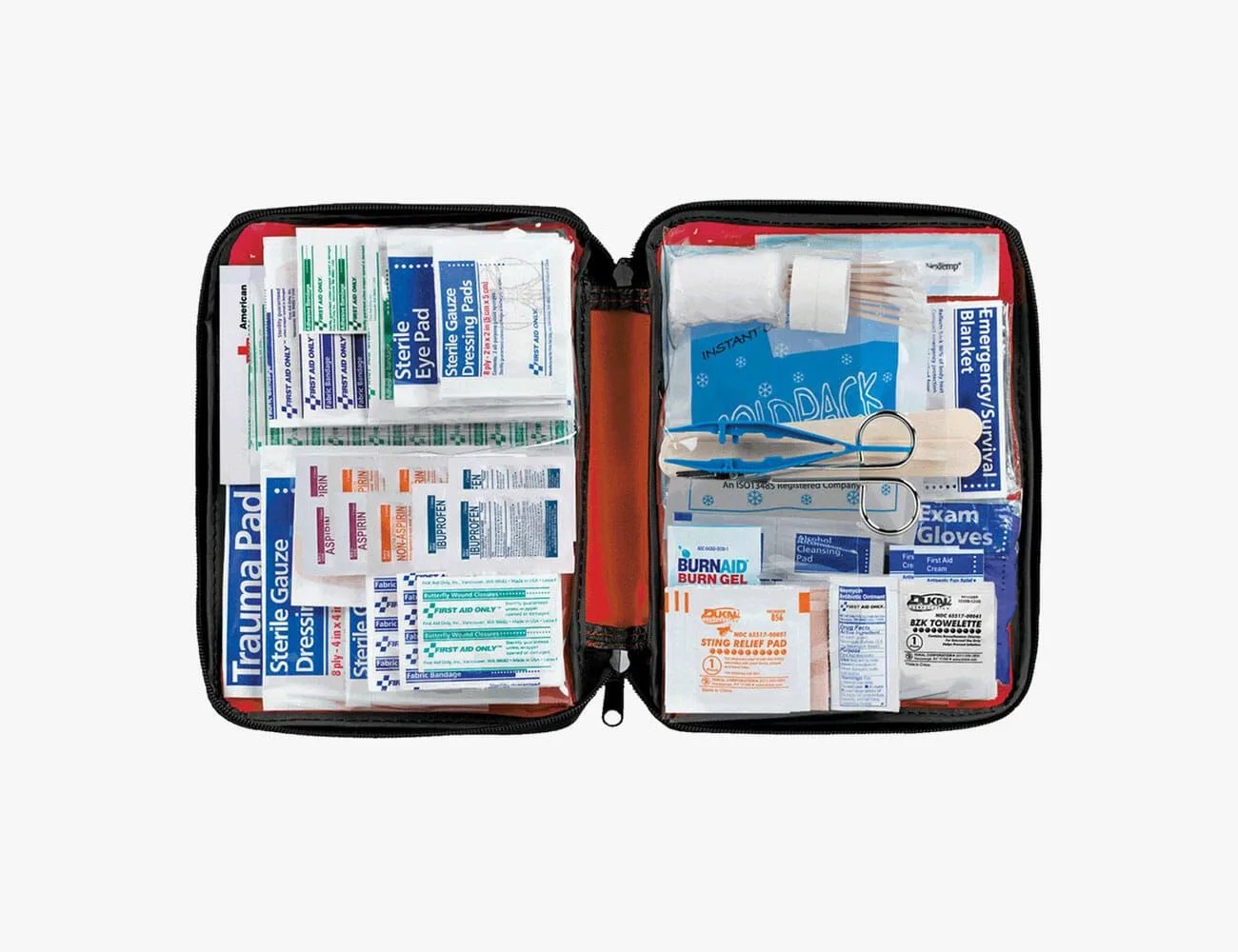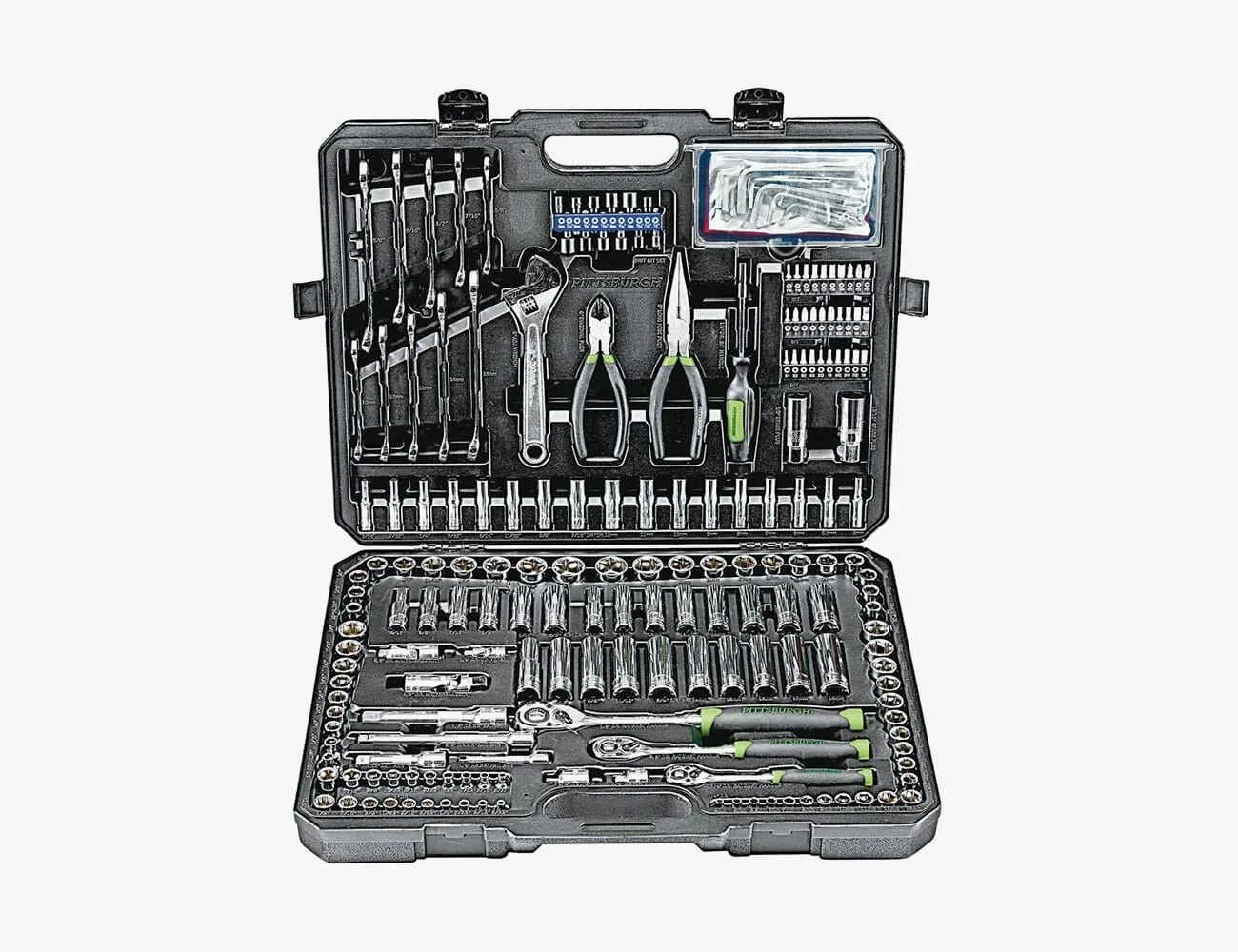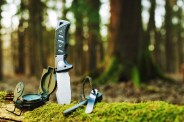This adventure started out surfing with the setting sun before the ocean swallowed it, or me, each night. Camping along craggy cliffs, cooking up curries under star-swathed skies. Waking up to laughing kookaburras. Spending my barefoot and bikini-clad days plucking my ukulele on the banks of red tea tree lakes, roving through rainforests, stripping naked in waterfalls and journaling about my epic solo expedition across Australia in the converted beater I call home. It was a lifelong dream, until it devolved into the stuff of nightmares…
When I bought my 1991 Mazda E2000 van off a backpacker in Byron Bay — Australia’s hippie haven — I’d anticipated some hiccups. For one, burgeoning bushfires were wreaking havoc across the country, and most of the land I’d wanted to explore was, well, on freaking fire. Roads were closed, and much of the notoriously deadly wildlife that lures us vagabonds here was… dead. The country was in crisis.
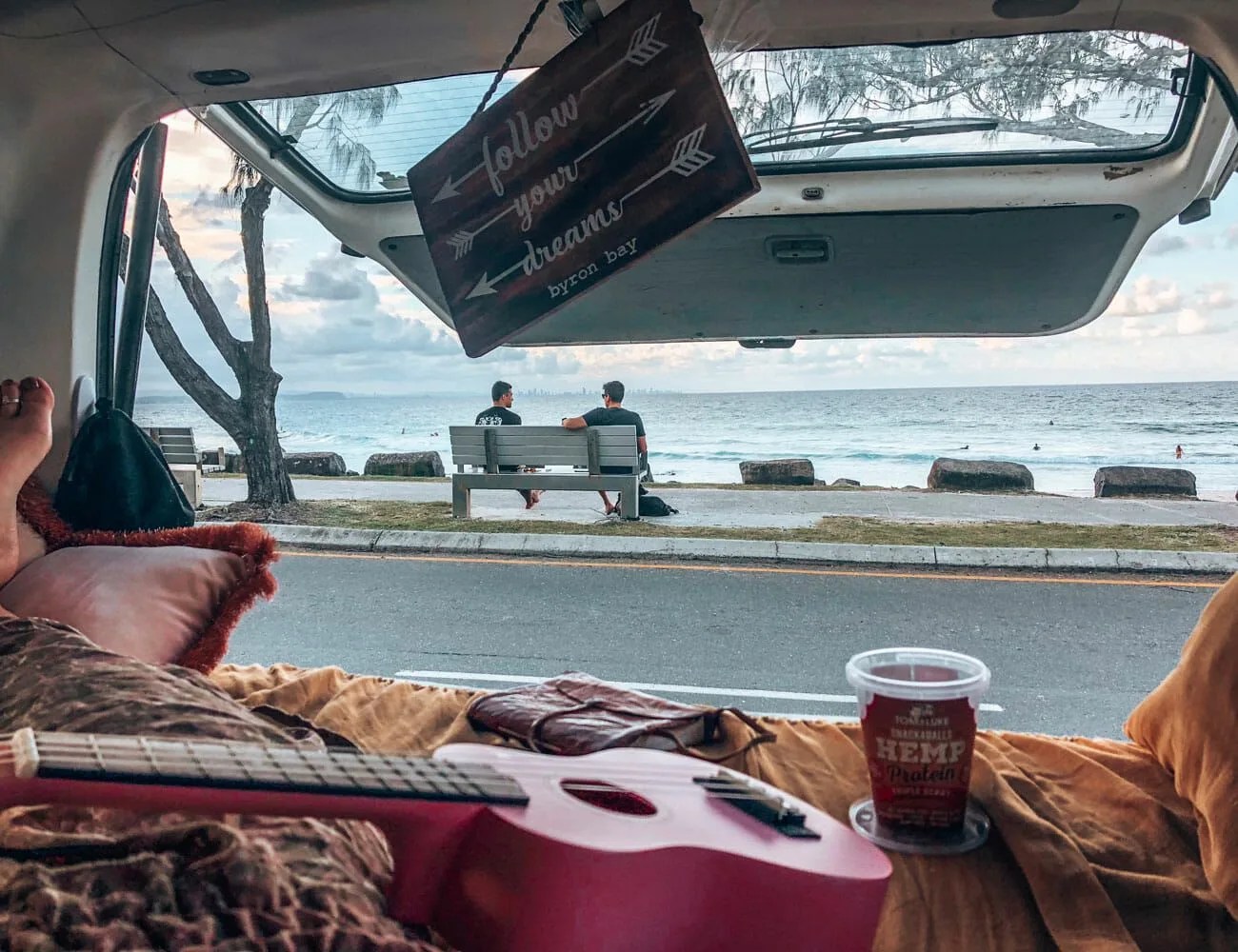
To add fuel to the fire — no pun intended — I’m a Jersey girl (i.e. I don’t pump my own gas.) turned New Yorker (i.e. I don’t drive.) with no business operating a rust bucket, let alone one with right-side steering and left-side road rules. So let’s just say that purchasing a monthly roadside assistance plan was a much wiser decision than actually purchasing this van. When I bought it, I knew less about “car stuff” than the headcase who recently broke in while I was peacefully sleeping knows about etiquette.
Living alone in a van on secluded Australian beaches seemed like the best possible way to self isolate. But it’s not that simple. Here’s how the bottom fell out, what I’ve learned and the critical equipment that can ease a fraught nomadic existence.
Coolant leak, go figure. Overheating engine, makes sense. Snapped AC belt in one thousand-degree temperatures, classic. Dead battery, ’twas only a matter of time. Flat tires, of course. Rain running through the rusted roof, sounds about right. Snake dangling a goddamn frog over my bed, only me. I even backed my van up into a drainage ditch and had to be towed out. It’s fine. I’m fine. Everything is so fine. I’m basically a better mechanic at this point than the stupidly sexy, greased-up halfwit who gave me the go-ahead to buy this beat-up thing in the first place. Turns out, all you have to do is sing her a song, spin her dream catcher three times, kiss the roof and jiggle the key in the ignition.
